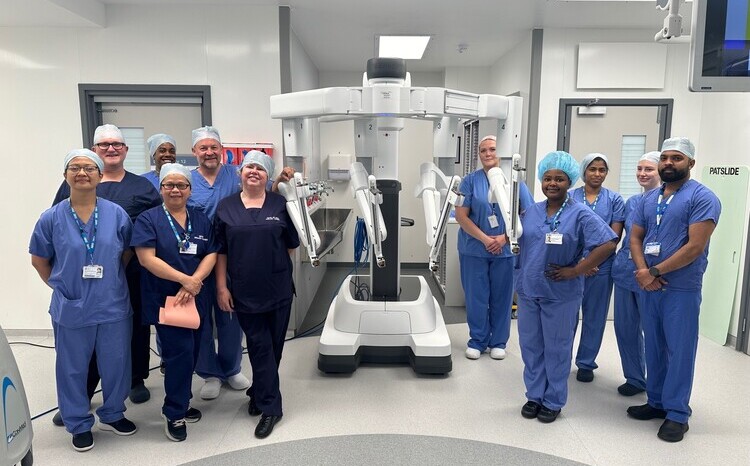Digital Health Coffee Time Briefing ☕
- 5 April 2024

Your morning summary of digital health news, information and events to know about if you want to be “in the know”.
👇 News
🏅 A world-leading Sheffield diabetes consultant whose research has played a key role in improving treatment and understanding of diabetic nerve damage, one of the major complications of diabetes, has been recognised with a prestigious National Institute for Health and Care Research (NIHR) Senior Investigator award. Professor Solomon Tesfaye, a consultant physician/diabetologist at Sheffield Teaching Hospitals NHS Foundation Trust, was given the award in the latest round of appointments made by the NIHR. NIHR Senior Investigators are among the most prominent researchers funded by the NIHR, the UK’s largest funder of health and care research.
🗣 The University of South Wales (USW) has partnered with Public Health Wales (PHW) to develop a glossary of terms to help clarify and standardise the terminology used in social prescribing. Social prescribing is an approach to healthcare that emphasises community connections and empowerment, an initiative that marks a significant step towards improving health and well-being outcomes, for people across Wales and beyond. Dr Simon Newstead, senior research assistant at the Wales School for Social Prescribing Research (WSPPR), based at USW and funded by Health and Care Research Wales, said: “Social prescribing uses a person-centred approach to connect individuals to their communities, with the aim of helping them to better manage their health and wellbeing”.
👩 A University of Cincinnati-backed startup is developing explainable AI to better diagnose coronary artery disease risk in women. Genexia, founded by Kelly Cohen, Dino Martis and Anoop Sathyan, aims to use explainable AI in mammograms for early detection of coronary artery disease to significantly reduce deaths and quality of life degradation for women. “Today, 500,000 women die of heart attacks,” Martis, Genexia’s CEO, said. “I would love to see in the future, we cut that number in half because of innovations such as ours. That would make the world a better place to live in.”
⚕ The World Health Organization has unveiled its new Smart AI Resource Assistant for Health (Sarah), a digital health promotor available 24/7 in eight languages via video or text. Sarah provides tips on how to lower stress levels, eat well, quit tobacco and e-cigarettes and be safer on the roads, as well as giving information on “several other areas of health”. Using generative AI as a base, Sarah has been trained using the latest information from the WHO and its trusted partners.
🤝 The United States and Britain this week announced a new partnership on the science of AI safety, amid growing concerns about upcoming next-generation versions. Britain and the United States are among countries establishing government-led AI safety institutes. Britain said in October its institute would examine and test new types of AI, while the United States said in November it was launching its own safety institute to evaluate risks from so-called frontier AI models and is now working with 200 companies and entites. Commerce Secretary Gina Raimondo and British Technology Secretary Michelle Donelan signed a memorandum of understanding in Washington to jointly develop advanced AI model testing, following commitments announced at an AI Safety Summit in Bletchley Park in November.
❓ Did you know that
New operational figures published Thursday show the success of the NHS catch-up campaign for measles, mumps and rubella vaccinations, with tens of thousands more vaccinations delivered in the first three months of this year compared to the same period in 2023. The most significant increase in vaccinations was for those aged five to 25 years old, with four times as many vaccinations – 75,499 – in the first three months of 2024 as the 18,433 in the same period last year. Between 1 Jan and 24 March 2024, there were a total of 360,964 MMR vaccinations delivered, up almost a quarter (23%) from 293,847 in 2023. This included 187,737 first doses and 171,635 second doses.
📖 What we’re reading
Healthcare providers and health tech companies are increasingly turning to AI to improve the accuracy and efficiency of diagnosis and treatment. This recent article from European intellectual property firm HGF explores some of the current trends in using AI in healthcare and how subscription services are changing the way healthcare organisations access and use AI.
🚨 Upcoming events
16 April, Cambridge – CHIME CIO Summit – CHIME International
24-25 April, ExCeL London – Digital Healthcare Show



